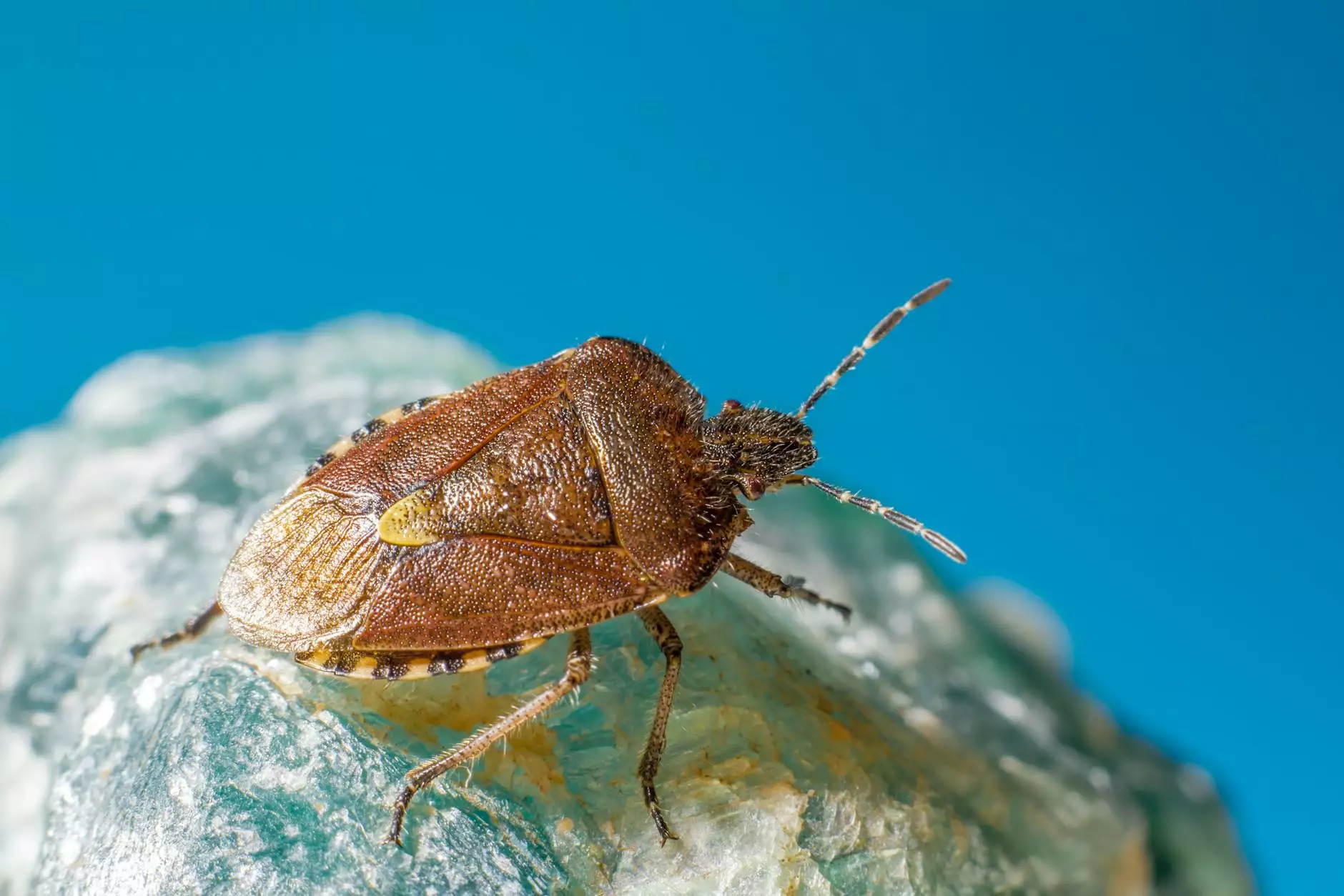Effective Insect Pest Management for Sustainable Farming

Insect pest management is an essential aspect of modern agriculture, playing a pivotal role in safeguarding our crops and ensuring sustainable farming practices. As we continue to navigate the challenges presented by agricultural demands and environmental changes, understanding how to effectively manage insect pests becomes ever more critical. This article explores the key components of insect pest management, its relevance to farming equipment, and how TSGC Inc. can help farmers optimize their operations.
The Importance of Insect Pest Management
Insect pests are one of the leading threats to agricultural productivity. They can cause significant damage by feeding on crops, spreading diseases, and breeding rapidly. Effective insect pest management not only protects our food supply but also contributes to the overall health of our ecosystems. Below are some reasons why effective pest management is vital:
- Crop Protection: Prevents damage to crops, thereby maximizing yield.
- Cost Efficiency: Reduces the need for expensive treatments and increases profitability.
- Environmental Sustainability: Minimizes the impact of chemical use on the environment.
- Food Safety: Ensures that the produce is safe for consumption, free from harmful infestations.
- Regulatory Compliance: Helps adhere to agricultural regulations regarding pest management.
Understanding Insect Pests
Insects are incredibly diverse, with many species capable of inflicting harm on crops. Understanding the biology and behavior of these pests is essential for developing effective control strategies. The main types of insect pests in agriculture include:
1. Chewing Pests
These pests, including grasshoppers, caterpillars, and beetles, feed on plant leaves, stems, and roots, causing visible damage.
2. Sucking Pests
These include aphids, whiteflies, and spider mites. They extract sap from plants, weakening them and transmitting diseases.
3. Boring Pests
Pests like borers create tunnels in stems and roots, compromising the structural integrity of the plant.
4. Disease Vectors
Insects such as thrips and leafhoppers can transmit viral and bacterial diseases that devastate crops.
Strategies for Effective Insect Pest Management
Effective insect pest management relies on an integrated approach, combining different strategies to ensure the sustainable success of farming practices. Here are the primary methods employed:
1. Cultural Control
Adjusting farming practices can help reduce pest populations and minimize damage. Cultural controls include:
- Crop Rotation: Changing crop types annually can disrupt pest life cycles.
- Planting Resistant Varieties: Selecting crops bred for pest resistance can significantly reduce infestations.
- Sanitation Practices: Removing debris and weeds can eliminate pest habitats.
2. Mechanical Control
The use of physical methods can directly control pest populations. Mechanical control strategies include:
- Traps and Barriers: Implementing insect traps and using row covers can protect crops from pests.
- Handpicking: For small infestations, manually removing pests can be effective.
3. Biological Control
This method leverages natural predators and parasites of pests, promoting a balanced ecosystem. Some key components include:
- Natural Predators: Introducing or conserving beneficial insects like ladybugs and lacewings can help control pest populations.
- Nematodes: Utilization of parasitic nematodes can help control soil-dwelling pests.
4. Chemical Control
While often considered a last resort, the judicious use of pesticides can be necessary for controlling severe infestations. Here are some guidelines:
- Targeted Use: Apply chemicals only when necessary and target specific pests to reduce collateral damage to beneficial insects.
- Timing: Applying pesticides at the right stage of pest development can enhance their effectiveness.
5. Integrated Pest Management (IPM)
IPM is a holistic approach that combines cultural, mechanical, biological, and chemical methods to manage insect pests sustainably. Key principles of IPM include:
- Monitoring: Regularly scout fields for early detection of pest populations.
- Action Thresholds: Determine acceptable levels of pests before implementing controls.
- Record Keeping: Track pest populations and control measures taken to improve future strategies.
TSGC Inc.: Your Partner in Insect Pest Management
At TSGC Inc., we understand the critical role that effective pest management plays in the success of your farming operations. Our team of experts is equipped with the knowledge and tools necessary to implement tailored insect pest management strategies that align with your specific needs. We offer:
Expert Consultation
Our experienced professionals conduct thorough assessments of your farming practices and pest challenges, providing individualized solutions that promote sustainable pest control.
Farm Equipment Repair and Maintenance
Efficient farming equipment is crucial for implementing pest management strategies effectively. We offer comprehensive repair and maintenance services to keep your equipment functioning optimally.
Educational Workshops
We believe in empowering farmers. Our workshops provide valuable insights into the latest insect pest management techniques, environmental responsibilities, and technological advancements in agriculture.
Conclusion
Insect pest management is not just about eradicating pests; it is about fostering a healthy farming ecosystem that promotes sustainability and productivity. As agricultural practices continue to evolve, so do the techniques for managing pests. By integrating cultural, mechanical, biological, and chemical methods, farmers can protect their crops more effectively while minimizing environmental impacts. With TSGC Inc. as your partner, you can navigate the challenges of pest management with confidence, ensuring the vitality of your crops and the sustainability of your operations.
FAQs about Insect Pest Management
1. What is the role of insect pheromones in pest management?
Pheromones can be used to trap specific pests or disrupt their mating behaviors, serving as a non-toxic method of control.
2. How can I identify the type of pest affecting my crops?
Consulting with pest management professionals or using local agricultural extension services can help identify pest types through sampling and observation.
3. Are organic pest control methods effective?
Yes, many organic pest control methods are effective and focus on using natural substances and biological controls to manage pest populations.
4. How often should I monitor for pests in my field?
Regular monitoring should occur at least weekly, and more frequently during peak pest seasons to catch infestations early.
5. What are the environmental impacts of chemical pest control?
Chemical pesticides can harm non-target organisms, pollute water sources, and disrupt local ecosystems. Responsible use is essential.
Take Action Now!
If you're ready to enhance your insect pest management strategies and ensure the success of your farming practices, contact TSGC Inc. today. Together, we can cultivate a sustainable future for agriculture.









